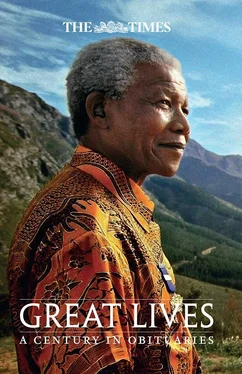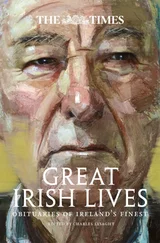Meanwhile, Kitchener did not neglect the military situation. He pushed to the utmost the construction of roads throughout the Delta, thus increasing the mobility of the troops; he stopped the Khedive from selling the Mariut Railway to a Triple Alliance syndicate, and by enabling the Egyptian Government to purchase it placed at its disposal (and at that of Great Britain) a line of communication of great potential strategic value in the future. The army of occupation was increased by the bringing of every battalion up to full strength. Points of vantage for strategic purposes were secured in Cairo under the guise of town-planning reforms.
Secretary of State for War
On August 5, 1914, Kitchener, who happened to be in England at the moment, was appointed Secretary of State for War. The post, as will be remembered, had been held since the end of the previous March by Mr Asquith, who now, ‘in consequence of the pressure of other duties’, handed it over to a man in whom the country at large placed perfect confidence. The fact that, for the first time, a soldier with no Cabinet experience was to become War Minister was seen to be an advantage rather than otherwise. What was needed was not a politician but an organizer – and organization was believed to be Kitchener’s especial gift. He was, too, exceptional in not under-rating his enemy. His first act as Minister was to demand a vote of credit for £100,000,000, and an increase of the Army of half a million men. In an interview with an American journalist, published in December, he was reported to have expressed his opinion that the war would last at least three years. In an official denial next day, ‘the remarks attributed to the Secretary of State’ were declared to be ‘imaginary’. In any case, it is certain that in the appeal which he issued, within two days of his appointment, for 100,000 men, the terms of service were given, as ‘for a period of three years or until the war is concluded’. In an article published in The Times of August 15, the reason why his plans had been based upon a long war were explained, and the wisdom of this recognition, at a moment when the world in general, including the Germans, cherished the belief that the war would be soon over, should always be remembered in forming any estimate of Kitchener’s work as Minister of War.
The curious inability of the authorities to come straight to the point, which was to dog the steps of the voluntary system as long as it lasted, at first concealed the fact that these 100,000 men were to be not an expansion, it was supposed, of the Territorial Force, nor even an addition to the Regular Army, but the beginning of an entirely new Army, to which common parlance quickly gave the name of ‘Kitchener’s’. Considerable difference of opinion existed in military circles as to the wisdom of Kitchener’s method of creating it. Many eminent officers, including Lord Roberts, considered that he would have been better advised if he had merely expanded the Territorial Force, the cadres of which would have provided a ready-made organization. But Kitchener preferred to do things in his own way.
In spite of the difficulties inevitable in the absence of machinery capable of coping with a rush some 50 times greater than any contemplated in normal circumstances, he was able by August 25, on his first appearance as a Minister of the Crown, to inform the House of Lords that his 100,000 recruits had been ‘already practically secured’. He added:
‘I cannot at this stage say what will be the limits of the forces required, or what measures may eventually become necessary to supply and maintain them. The scale of the Field Army which we are now calling into being is large and may rise in the course of the next six or seven months to a total of 30 divisions continually maintained in the field.’
It would be an ungrateful task to recall the series of appeals, misunderstandings, and recriminations which attended the course of the recruiting campaign. Its varying fortunes seem trivial enough today, when the task is complete. Kitchener was a sincere believer in the voluntary service which had given him the Armies with which he had won his fame. And amid the chaos of political controversies which surrounded him in the Cabinet he applied himself unsparingly to the task of raising men.
At the beginning of the war he lived at Lady Wantage’s house in Carlton House Terrace, but early in 1915 he went into residence at York House, St James’s Palace, which was placed at his disposal by the King. He worked all day and every day, only spending a few hours occasionally at Broome Park. Of relaxation he took practically none, unless the inspecting of troops maybe described by that name.
As time went on it became evident that Kitchener was attempting more than lay in the power of any one man. In May of last year the disclosures of the Military Correspondent of The Times as to the shortage of shells at the front came as a sudden shock to the country, although they were merely the culmination of a series of previous warnings. It is proof of the immense belief which Kitchener inspired in the country that The Times was falsely accused of ‘attacking’ him in calling attention to an admitted deficiency. But the prompt institution of the Ministry of Munitions relieved him of that part at least of his heavy burden, and enabled him to devote himself more strenuously than ever to the attempt to maintain under the voluntary system the enormous Army gradually assembling in the field. With the reconstitution at the beginning of October, 1915, of the General Staff Kitchener was relieved of yet another part of his overgrown duties, and the War Office gradually assumed shape and organization.
Kitchener naturally paid several visits to France on tours of inspection. He was also present at the Allied Conferences at Calais and Paris, where his knowledge of French, superior to that of most of his colleagues, gave him a certain advantage in the discussions.
In November last the announcement that, ‘at the request of his colleagues’, Kitchener had left England for a short visit to the Eastern theatre of war brought home to the general public the seriousness of the situation in Gallipoli. The part played by him in the military aspects of the decisions arrived at before and during the Dardanelles Expedition can only be conjectured. After a short stay in Paris, he visited the Dardanelles, and later had an audience of King Constantine in Athens, returning home by way of Rome, the Italian front, and Paris. The result of Kitchener’s investigations, confirming as they did the recommendations of General Monro, was the evacuation of Gallipoli.
The remarkable and unprecedented occasion on which, five days ago, he received a considerable proportion of the members of the House of Commons, making a statement to them and replying to recent criticisms of Army administration, is fresh in the public memory.
Kitchener was made a kg in 1915. During the war he also received the Grand Cordon of the Legion of Honour and of the Order of Leopold. He was never married. The earldom which was conferred on him in July, 1914, passes by special remainder to his elder brother, Colonel Henry Elliott Chevallier Kitchener, who was born in 1846. The new peer served in Burma and with the Manipur Expedition in 1891, being mentioned in dispatches. At the outbreak of the present war he offered his services to the Government, took part in the campaign in South-West Africa, and is now on his way home. He is a widower, and has one son, Commander H. F. C. Kitchener, rn; and a daughter.
Dictator of Soviet Russia.
World revolution as goal.
21 January 1924
Nikolai Lenin, whose death is announced on another page, was the pseudonym of Vladimir Ilyich Ulianov, the dictator of Soviet Russia. His real name has almost passed into oblivion. It was under his nom de guerre that he became famous. It is as Lenin that he will pass into history.
Читать дальше












